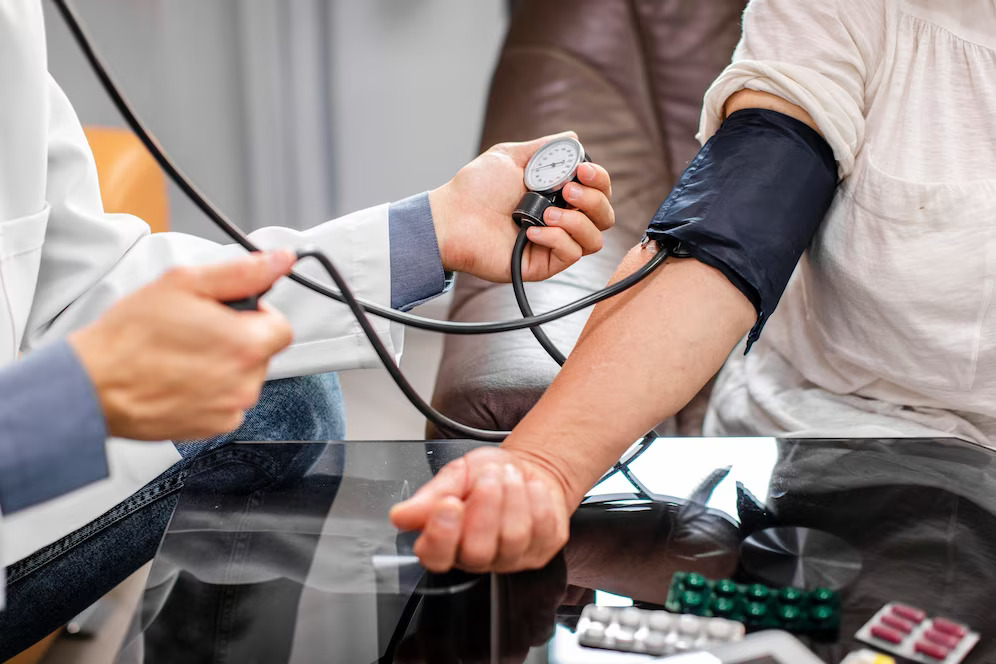Congratulations on taking a significant step towards better oral health by having your wisdom teeth removed. This guide is here to make your recovery process as smooth as possible. Choosing the right foods is crucial for minimizing discomfort and ensuring a quicker healing process.
1. The First 24 Hours: Liquids are Your Friends
The initial 24 hours after wisdom teeth removal are the most critical. During this time, your mouth will be tender and prone to swelling. Consuming clear and cold liquids is the safest choice. Water should be your best friend during this period to prevent dehydration and facilitate the healing process. Staying hydrated is essential for a quick recovery.
Another excellent option is broth. Warm, unsalted broth can provide nourishment and comfort. It’s easy on your surgical sites and gives you some much-needed sustenance. Additionally, popsicles can help numb the pain while keeping you refreshed. Just ensure they are not too cold to avoid discomfort. Lastly, consider making soothing smoothies by blending soft fruits like bananas and yogurt. These are not only nutritious but also easy on your mouth, helping you stay satisfied during this initial phase.
2. Soft Foods for Days 2-3: The Mushy Phase
As you progress into the second and third days of your recovery, it’s time to transition to softer foods. Your mouth will still be sensitive, so you’ll want to focus on applesauce, which is not only a tasty option but also gentle on your healing gums. Mashed potatoes are another wonderful choice due to their creamy texture, providing you with both comfort and nourishment. For a more wholesome meal, try oatmeal, which offers essential fiber and nutrients for your recovery. Lastly, yogurt is a great source of protein, and its smooth consistency won’t cause any harm to your surgical sites.
3. Days 4-7: Semi-Solid Choices
By the time you reach the fourth to seventh days, your mouth is likely to be less sensitive, and you can start incorporating semi-solid foods into your diet. These foods are easy to chew and provide a bit more variety in your meals. Scrambled eggs are an excellent option because they are packed with protein, which aids in tissue repair and healing. Avocado, being creamy and nutritious, can be added to your menu. Cottage cheese is another protein-rich choice that’s gentle on your mouth. And if you’re craving some comfort food, consider mac and cheese, a favorite that’s both soft and satisfying.
4. A Week In: Gradually Return to Regular Diet
After a week, you can gradually start reintroducing your regular diet, but do so with caution. Your mouth is still in the healing process, so focus on foods that are easy to chew and won’t cause any harm. Pasta is a good choice, but make sure it’s cooked until very soft to avoid any potential discomfort. Steamed vegetables are tender and easy to chew, providing you with essential vitamins and minerals. If you’re a fan of seafood, opt for fish, which is flaky and rich in omega-3 fatty acids, contributing to a quicker recovery. For a plant-based option, tofu is an excellent source of protein and is gentle on your healing mouth.
5. Avoid These Foods
While it’s essential to know what to eat during your recovery, it’s equally important to be aware of what to avoid. Certain foods can hinder the healing process and potentially cause discomfort or complications. It’s best to stay away from crunchy snacks like chips, popcorn, and nuts. These can be abrasive and may disturb the surgical sites or even get lodged in the sockets. Spicy foods should also be avoided, as they can lead to irritation and discomfort, which you definitely want to minimize during your recovery. Additionally, steer clear of hot beverages, as they can irritate the surgical sites and potentially lead to complications. It’s crucial to consume your beverages at a comfortable temperature.
Lastly, straws should be off-limits during your recovery. Using straws creates suction in your mouth, which can dislodge the blood clots forming in the sockets where your wisdom teeth were removed. These blood clots are crucial for proper healing, so you want to protect them at all costs. By avoiding these foods and behaviors, you’ll help ensure a smoother and more comfortable recovery process.
6. Hydration is Key
Throughout your recovery, maintaining proper hydration is essential. Dehydration can slow down the healing process and increase discomfort. Make sure to sip water frequently to stay adequately hydrated. Avoid sugary or acidic drinks as they may irritate your mouth and slow down the recovery process. Staying hydrated is fundamental to the healing process and will help you feel better throughout your recovery.
7. Pain Management
Wisdom teeth removal can be painful, and you may experience some discomfort during the recovery period. It’s crucial to follow your dentist’s advice on pain management. They may prescribe pain relievers or recommend over-the-counter medications to help you manage the pain. Always take these medications as directed, and never exceed the recommended dosage. If you have any concerns about your pain management, don’t hesitate to reach out to your dentist or oral surgeon for guidance. Proper pain management is key to a more comfortable recovery.
8. Foods to Promote Healing
Certain foods can significantly support the healing process after wisdom teeth removal. It’s essential to include foods that are rich in specific nutrients to aid in the recovery. Here are some key nutrients and the foods that contain them:
- Vitamin C: This vitamin is essential for the healing of tissues and the immune system. Include foods like citrus fruits (oranges, lemons, and grapefruits), strawberries, and bell peppers in your diet.
- Protein: Protein is crucial for tissue repair and recovery. Opt for foods like eggs, yogurt, milk, lean meats, and legumes to meet your protein needs.
- Fiber: Fiber supports digestive health, which is essential during recovery. Add foods like whole grains, oats, and fruits to your diet.
- Antioxidants: Antioxidants help reduce inflammation, which can be beneficial during the healing process. Include foods like berries, leafy greens, and green tea in your diet to reap the benefits of antioxidants.
By including these foods in your post-wisdom teeth removal diet, you can help your body heal more efficiently and reduce the risk of complications.
9. Plan Your Meals
During your recovery period, planning your meals in advance can be incredibly helpful. It can be challenging to prepare food when you’re in discomfort or pain, so having soft or semi-solid foods readily available can save you time and effort. Prepare a variety of options that you enjoy and that meet your nutritional needs, and have them on hand so you can focus on your recovery without the added stress of meal preparation. Planning your meals in advance ensures that you have the right foods available when you need them, making your recovery period more comfortable and less stressful.
10. Listen to Your Body
Recovery after wisdom teeth removal can be a unique experience for everyone. While this guide provides general guidelines on what to eat, it’s essential to listen to your own body. If you try a particular food and it causes pain, discomfort, or irritation to your surgical sites, it’s best to avoid it. Some individuals may recover more quickly and find they can introduce certain foods earlier, while others may need more time. Your body knows best, so pay attention to how it responds to different foods and adjust your diet accordingly. If you have any concerns or questions about what to eat, don’t hesitate to consult your dentist or oral surgeon for personalized advice.
11. Maintain Oral Hygiene
Even though your mouth is sensitive after wisdom teeth removal, it’s crucial not to neglect oral hygiene. Gently rinsing your mouth with saltwater as advised by your dentist is an essential step to prevent infection and promote healing. Maintaining oral hygiene helps to keep the surgical sites clean and free from bacteria, reducing the risk of complications. While it’s important to be gentle and avoid disturbing the surgical sites, good oral hygiene is a fundamental aspect of your recovery process.
12. Don’t Rush It
Recovery after wisdom teeth removal takes time, and it’s essential not to rush the process. Although you may feel better after a few days, it doesn’t mean you’re entirely healed. Healing occurs in stages, and it’s crucial to allow your body the time it needs to recover fully. Don’t attempt to eat solid foods too soon, as this can cause discomfort and potentially harm the surgical sites. Follow the dietary recommendations provided by your dentist or oral surgeon, and be patient throughout your recovery. By taking your time and allowing your body to heal at its own pace, you’ll experience a smoother and more successful recovery.
13. Signs of Complications
While most people recover without any significant issues after wisdom teeth removal, it’s essential to be aware of potential complications. Some signs that may indicate a problem include:
- Excessive bleeding: It’s normal to have some bleeding immediately after the procedure, but if it continues or worsens after the first day, contact your dentist.
- Severe pain: While some discomfort is expected, severe or worsening pain may be a sign of a problem.
- Infection: If you notice increasing swelling, redness, or discharge from the surgical sites, it could be a sign of infection.
- Fever: A persistent or high fever could indicate an underlying issue.
- Difficulty breathing or swallowing: If you experience difficulty with breathing or swallowing, seek immediate medical attention.
If you notice any of these signs or have concerns about your recovery, don’t hesitate to contact your dentist or oral surgeon. They can assess your condition and provide guidance on the necessary steps to address any complications.
14. Gradual Return to Chewing
Even after a week, you may not be ready to tackle tough meats or hard bread. It’s essential to gradually reintroduce these harder foods into your diet as your mouth continues to heal. Start with small, soft pieces of foods like chicken or fish, and be cautious while chewing to avoid putting too much pressure on the surgical sites. As your mouth becomes more comfortable with chewing, you can expand your diet to include your regular favorite foods. Remember, patience is key to a successful recovery.
15. Final Thoughts
What you eat after wisdom teeth removal plays a vital role in your recovery. By following these guidelines and choosing soft, nutritious foods that won’t irritate your surgical sites, you’ll experience a smoother and more comfortable healing process. Stay hydrated, manage pain effectively, and maintain good oral hygiene. Be patient and listen to your body; healing is a gradual process, but with the right choices and care, you’ll be back to normal in no time.
Frequently Asked Questions (FAQs)
When can I start eating solid foods after wisdom teeth removal?
You can typically start reintroducing solid foods after a week, but consult your dentist for personalized advice. Keep in mind that everyone’s healing process is unique, so their recommendations are essential.
Can I eat spicy foods during my recovery?
It’s best to avoid spicy foods during the initial recovery phase, as they may cause discomfort and irritation to the surgical sites. Spices can be abrasive and slow down the healing process.
How can I reduce swelling after wisdom teeth removal?
To reduce swelling, apply a cold pack to the affected area for 20 minutes on and 20 minutes off during the first 24 hours. This can help minimize discomfort and swelling.
Is it normal to have a sore throat after wisdom teeth removal?
A sore throat can be a side effect of the procedure because your mouth is held open during surgery. This discomfort is generally temporary and should subside within a few days.
Can I consume dairy products during my recovery?
Yes, dairy products like yogurt and cottage cheese are soft and nutritious options that can be consumed during your recovery. Ensure that they are not too cold, as extreme temperatures can be uncomfortable for your sensitive mouth.
Can I use mouthwash after wisdom teeth removal?
Avoid using mouthwash with alcohol immediately after the procedure, as it can be harsh on the surgical sites. Instead, stick to saltwater rinses as recommended by your dentist.
Is it normal to have a bad taste in my mouth after wisdom teeth removal?
A slightly unpleasant taste is common after the procedure due to the presence of blood and healing tissues. This typically resolves as your mouth heals.
Can I brush my teeth after wisdom teeth removal?
It’s important to maintain good oral hygiene. You can gently brush your teeth, avoiding the surgical sites, after the first 24 hours. Be cautious not to disrupt any blood clots forming in the sockets.
How long does it take for the surgical sites to fully heal?
The complete healing of the surgical sites can take several weeks to a few months. It varies from person to person, so follow your dentist’s guidance for a more accurate timeline.
When should I resume my regular dental care routine after wisdom teeth removal?
You can typically resume your regular dental care routine, including flossing, brushing, and using mouthwash, a few days after your wisdom teeth removal, but do so gently to avoid disturbing the healing sites. If you have any concerns, consult your dentist for personalized advice.
Disclaimer:
The information provided in this article is for general guidance and informational purposes only. It is not intended as a substitute for professional medical advice, diagnosis, or treatment. Always seek the advice of your dentist or oral surgeon regarding your specific condition and recovery process. We do not endorse or promote any specific dental or medical products mentioned in this article. Reliance on any information provided in this article is solely at your own risk.

David M is a seasoned author renowned for his expertise in health tips and homemade remedies. With a passion for wellness, he diligently researches and meticulously analyzes a plethora of online resources, ensuring their credibility. David’s dedication shines through as he curates invaluable information, catering to health enthusiasts.










